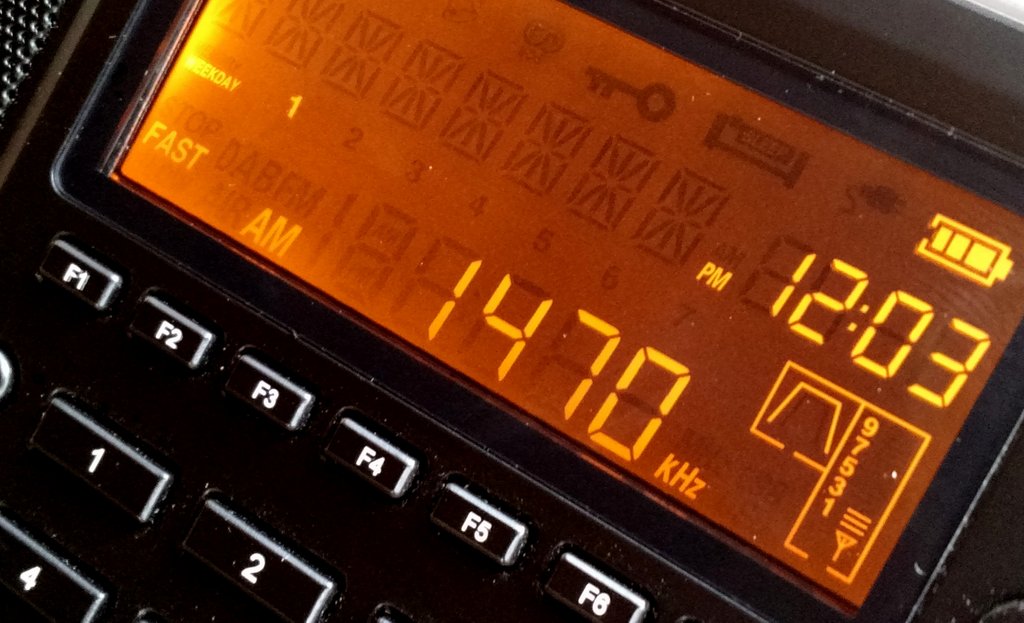 Many thanks to SWLing Post contributor, Kris Partridge, who shares the following article that notes the UK will not follow a Norway-style digital switch-off. Rather, broadcasters will be allowed to switch off individual AM (and eventually FM) transmitters once they determine it is no longer a cost-effective strategy.
Many thanks to SWLing Post contributor, Kris Partridge, who shares the following article that notes the UK will not follow a Norway-style digital switch-off. Rather, broadcasters will be allowed to switch off individual AM (and eventually FM) transmitters once they determine it is no longer a cost-effective strategy.
From Radio Today:
Analogue commercial radio licences to be given ten-year renewal
Analogue commercial radio licences due to expire in the next couple of years will be given a 10-year extension under new government plans.
During a consultation, the Department for Digital, Culture, Media and Sport had originally proposed either 5 or 8 year extensions, but in light of the Coronavirus pandemic’s impact on commercial radio revenues has decided to offer stations an extra 10 years.
[…]Minister for Media and Data John Whittingdale said: “As we move into an increasingly digital world we’re making sure the licensing landscape for radio is fair and up-to-date and allows audiences to enjoy a wide range of high-quality stations.
“Today’s step ensures there is no disruption for loyal listeners of treasured FM and AM radio services such as Classic FM, Absolute Radio and TalkSport over the next decade.
“We will soon be turning our attention to providing similar long-term certainty to support the future growth of digital radio.”[…]

There is no 10 year plan, just an extension of licences to preserve the status quo thus avoiding them being re-advertised and open to others to apply for or, in the case of the national commercial licences, put up for auction. Commercial radio operators can hand back analogue licences at any time or in the case of the national commercial stations, apply to turn off some of their transmitters to reduce their costs and coverage area as Absolute have recently done. Nor are most DAB/DAB+ tranmissions in poor quality mono, in fact a lot of stations are switching from DAB to DAB+. Setting a switch off date for analogue transmissions has not been ruled out, that is the subject of the other review mentioned, as the Government document on the licencing consultation says under the 2010 Act they can set a date for all, or some, analogue licences to be cancelled giving a minimum of 2 years notice. John Whittingdale’s statement is misleading, commercial radio licencees can do what they like with their analogue licences without having to seek the Goverment’s permission.
Mike,
http://www.wohnort.org/dab/uknat.html and its UK local listing shows that the number of DAB+ programs is increasing using HE AAC V2 compression. However there is still a lot of high data rate DAB broadcast. This includes many mono broadcasts.
At the bottom of the listings the date reveals how up to date the data is.
Australia has only DAB+ digital radio and the only mono transmissions are speech only.
The UK is the only country who is using the legacy version of DAB. In the 10 year plan there is no commitment to DAB+ transmission. Their legacy version has poor error correction by comparison so noise near the edges of the coverage area and in black spots sounds like bubbling mud. The biggest problem is the inefficient audio compression forcing most programs to be in poor quality mono. I would rather listen to FM than DAB. DAB+ or DRM in the VHF band is a different story.
The do have DRM, running, Woofferton 100 kW DRM transmitter for the BBC World service
Note that they’re required to commit to *DAB* to automatically receive the extension.
DRM isn’t even in the running…